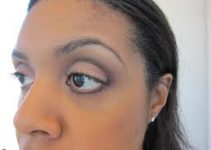Occasional snoring is normal. However, if it happens frequently it may become annoying, embarrassing and sometimes a bother. It may affect the quality of your life, your family and that of your partner. Below are details on how to stop snoring naturally and permanently. Find out more on the use anti-snoring devices and medical treatments to stop snoring while sleeping.
Causes of Snoring
What is snoring? Snoring is breathing noisily during sleep; it’s a rattling harsh sound. It occurs when the throat airway is narrow hence when breathing there is a vibration of the soft plates caused by air through the narrow airways which create hoarse sounds. Before we learn different snoring remedies, here is a brief on what causes snoring.
Position during Sleep
It is a very common cause of snoring when a person sleeps on is back facing the sky; he/she is more likely to snore. The science behind it is that due to gravitation pull the relaxed throat muscles are pulled back blocking airflow; also the tongue may drop to the back of the mouth, obstructing breathing. It eventually results to snoring.
Being Overweight
Overweight people are more likely to snore because it can cause bulky throat tissue which blocks swift airflow when breathing leading to snoring.
Allergies and Nose Structure
Allergies bring about the blockage of the nose leading to minimized air flow through the nose e.g. flu or cold and as you know now, anything that prevents free breathing capabilities may bring snoring. The same case occurs if nose structure prevents free air flow through the nose resulting in snoring problems.
Alcohol, Medication, and Smoking
These substances have been known to contain properties which lead to tissue and muscle relaxation which leads to snoring. Some may even cause inflammation in the throat leading to obstruction of air flow.
Weak Throats and Tongue muscle, or Age
Aging results in further relaxation of throat and tongue muscles. The weak throat and tongue muscles can be too relaxed leading to the blockage of airways which later bring about snoring during sleep.
Sinus problems
Sinusitis also known as sinus infection is an infection that causes swelling on the nostrils and over-abundance of mucus in the nose. As a result, there is no free airflow through the nose due to blockage causing snoring during sleep.
Why Snoring Should be Addressed Immediately
To help with snoring, first, it is good to know the reason you are snoring; it may be of natural causes or may be health related. Visit a health facility or consult an otolaryngologist to find out why you are snoring.
Find means to get rid or control the snoring, it may be through therapeutic process, use of anti-snoring devices e.g. sleeping masks, ear plugs, etc. or natural remedies. You can always try other methods if one does not work for you.
What are the effects of snoring?
Here are reasons why snoring should not be addressed
Sleeplessness, Insomnia
Snoring may get you waking up several times during the night. This results in poor sleeping patterns. It may be difficult to fall back to sleep. It also rids you of adequate rest. Fatigue due to less sleep is common may spill onto the next day impairing job performance
Heart disease or stroke
Sleep apnea connection with snoring. Studies have shown that there is a link between sleep apnea and snoring. 1 out of 4 people snoring people have Sleep Apnea. This sleeping disorder cause’s one’s breathing to stop for about 10 seconds at a time. This may lead to more serious health problems such as heart disease or even stroke.
Headache
Chronic headaches in the morning are usually caused by snoring; that is if you snore there is a high possibility that the headaches are an effect of snoring. When you snore there is a change of the oxygen and carbon IV oxide level in the blood due to the uneven breathing and intake of oxygen, thus causing headaches.
Choking or gasping
Inconsistency in breathing for people who snore, may lead to gasping and choking at night.
Low self-esteem
Snoring may make one a social ridicule. This may also put a strain on relationships. One may be unable to endure sleeplessness due to a partner who snores.
How to Stop Snoring Naturally
What can I do to stop snoring? Once you find out, you are snoring or someone you know snores, it’s good to seek ways to stop or control it. Here is how to stop snoring naturally:
Some of these methods are practiced before one visits a doctor.
1. Lose weight to help stop snoring at night
Weight lose some of the fatty tissue in the throat, which helps minimize the blockage on the throat caused by the fat tissues, enabling more air flow so easier breathing. It will reduce or stop the snoring completely.
2. Change sleeping position to stop snoring immediately
As we have seen sleeping on your back brings about snoring. Thus it is recommended to change your sleeping position by sleeping on your side. So your soft throat muscles do not fall back on the walls of your throat, thus snoring stops.
3. Exercise your mouth, tongue and throat
Exercising your mouth, tongue, and throat can also help with getting rid of snoring. Here is how to do it:
- Sucking the tongue on your mouth’s hard palate and soft palate, then press it on the palates. Doing it regularly and 15-30 times daily really helps a lot in stopping snoring.
- Say vowel sounds loundly20-30 times. It should be done periodically.
- Open your mouth widely and stick your tongue out, mimicking the way when doctors tell you to open your mouth wide, do this and till your jaws tire.
- Put the tip of your tongue on the back side of your upper teeth. Then start to drag it slowly across the hard palate to the soft palate near the uvula. Remember to use the tip of your tongue, not the whole tongue.25 times daily.
All of these exercises help to free up space in your throat making breathing easier during sleep, so breathing obstruction is prevented thus reduced snoring.
4. Reduce/stop smoking to get rid of snoring, permanently
Quitting or reducing smoking helps reduce inflammation in your which causes snoring due to blockage of air pathways resulting in faded snoring tendencies.
5. Hydrate regularly for snore relief
Hydrating regularly, even when you are not thirsty; it helps in weight reduction which helps reduce snoring, also when you hydrated section of the soft palate and nose become less sticky, hence your snoring seizes. Make sure you take at list six glasses of water a day to ensure proper hydration
6. Limit alcohol intake
Limiting alcohol intake ensures that your throat muscles are not relaxed excessively, which causes snoring. This guarantees air ways to have space for regular breathing capability. Alcohol consumption should also be avoided when going to sleep.
How to Stop Snoring Using Anti-snoring Devices
There are several stop snoring devices designed to help with snoring while sleeping. These anti-snoring aids are either made for the nose, mouth or chin.
7. Chin strap to help with snoring
Chin strap is a device you put on your jaw; it has straps that go around your head and a cup to hold your jaw. The chin strap keeps your jaw forward; closing your mouth when you are sleep and opens the air way, thus promotes breathing through the nose and stops snoring.
8. Stop snoring mouthpiece
It keeps your lower jaw forward, so the mouth stays closed, but the airway is open so no snoring. At first using these device files awkward but you will get used to it. There are very many types of mouthpieces from all sorts of manufacturers, so it’s good to do research before buying one.
Mouthpieces have some side effects such as teeth alignment alteration, salivation when sleeping, soreness in the mouth and gag reflex. But with time most of the side effects will fade away. It’s an excellent anti-snoring device and its one of the most common too.
9. Nose Strap or THERAVENT
Both used on the nose area; Theravent is a strip applied over the nostrils, the science behind it is that when you inhale through the nose, it produces a gentle pressure which in turn forces the throat air way wide, eventually stopping snoring. The technology used is called MicroValve technology and is patterned.
Use of a nose strap is more common than Theravent; it’s applied on the nose surface over the Dorsum Nasi and nasofacial angle. It opens up nostrils for easier breathing, thus reducing or stopping snoring. However, Nose strap is not as effective as Theravent because if your snoring originates from the throat, it’s less efficient.
10. Anti-snoring pillows to stop someone from snoring
The pillow is made in such a way that it encourages sleeping on the side. It supports the neck keeping the air way open, reducing neck constriction. In some cases, people claim that the pillows are very uncomfortable and may cost a lot with little effect. Check it out to find out if it is useful in helping you with your snoring problem.
11. Use Ear Plugs when your partner is snoring
Ear plugs are alternative devices used when your bed partner snores and a solution for the snoring has not been found. There are different types and sizes of earplugs. All you need to do is find a size that you are comfortable with. Plug them into your ear and have a great night sleep.
NB. It’s good to be very careful when purchasing anti-snoring devices. First, check their credibility; if they have been approved. Check the reviews online for those with better rating than others. Use reviews and comments can prove usefulness in understanding the devices. You can get these devices online and or local stores. Remember that it is very important to consult a doctor to better understand your problem.
How to Stop Snoring using Medical Treatments
Medical treatments are a handy option for when natural remedies and anti-snoring devices do not work. It may be an easier option for those who may find it hard to change their lifestyles. In some cases, one may not have any other option, other than seeking medical help to help with snoring. Here are different medical treatments available to help stop snoring.
12. Continuous Positive Airway Pressure (CPAP)
CPAP a form of treatment a machine blows mildly pressurized air into a mask you were on your face to keep your airway open and prevent snoring; it’s commonly used by people with sleep apnea.
13. Use medication to stop snoring and improve your health
It is important to note that most medicines touted to stop snoring are a sham. There is nothing like medicines to cure snoring. There is no known cure for snoring. The best that medications can do for you is to treat underlying disease or infection. Make sure you get the right consultation and prescription done by a professional.
Use of antibiotics helps in the treatment of inflamed adenoids hence reducing or getting rid of snoring. This will work only if adenoidal is the main cause of your snoring.
Use of Antihistamines nasal spray helps remove inflammation and swelling, hence relieving snoring symptoms.
Health Tip
Snoring is a possible indicator of sleep apnea. This is potentially life serious health condition that requires medical attention. While snoring does not affect the quality of life, sleep apnea may result in fatigue and life endangering sleepiness. Get yourself checked out- your problem could be more than just snoring.
Surgery to help stop snoring permanently
Surgery is a last resort if nothing else works for you. Mainly what happens in surgery is the removal of excess tissue in the area that may directly cause snoring; there is also the removal of uvula or tonsils. It’s best to find a qualified surgeon and an experienced one. Here are types of surgeries commonly done to help with snoring
• Uvulopalatopharyngoplasty (UPPP)
In this case the surgeon removes the uvula, some part of the soft pallet and the tissue around the throat which is in excess.
• Uvulopalatoplasty (UP)
Here high-energy radio waves are used to burn parts of the soft pallet and uvula. It’s used as an alternative to (UPPP).
Laser assisted uvulopalatoplasty uses laser to make small cuts in the soft palate. During healing, the tissues tighten, stiffen and reduce vibrations that come out as snoring.
Somnoplasty
Somnoplasty is performed under local anesthesia. It is the use of low levels of radio-frequency heat to remove tissues of the soft palate and the uvula which vibrate causing snoring.
Use of Palatal Implants
Also known as the pillar procedure, it involves insertion of small plastic implants into the soft palate. This is meant to prevent the soft tissues of the palate from collapsing
NB: Taking a home-based sleep test using a portable monitor, or an overnight stay at a sleep clinic helps a lot and may lead to better understanding of why you snore.
Sources and References
British Snoring and Sleep Apnea Association: Surgery for Snoring
Mayoclinic.com: Snoring
American Academy of Otolaryngology: Snoring and Sleep Apnea
Harvard Health Publications: Snoring Solutions
Snoring.com: The Physiology and Anatomy of Snoring








